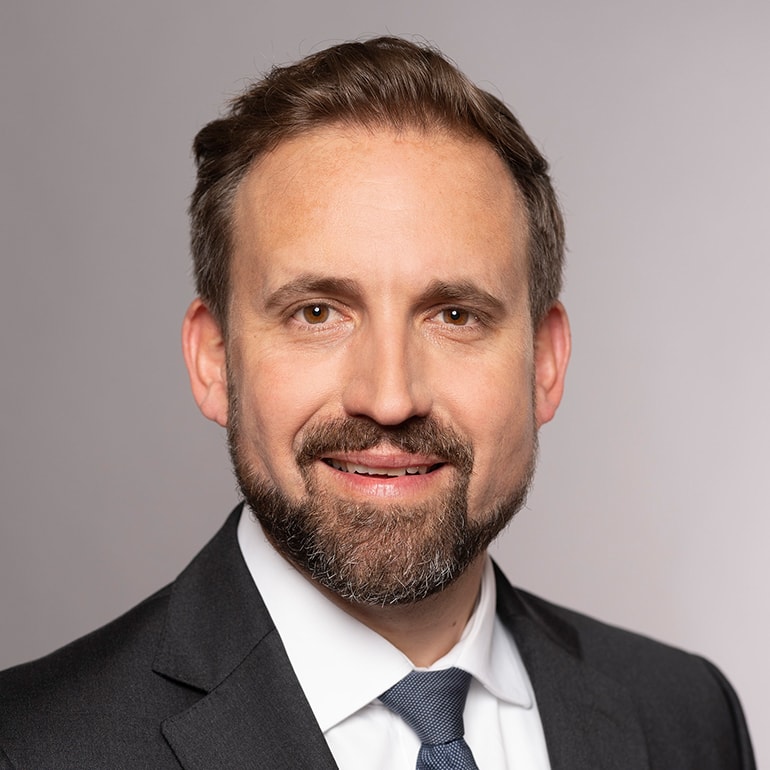28.04.2021
The sins of the father are to be laid upon the children - Advocate General wants subsidiary liable for cartel damage caused by its parent company

What seems impossible under German civil law, could soon become reality in EU antitrust law: Children being held liable for damages caused by their parents. In a request for preliminary ruling, Advocate General Pitruzzella proposes to the European Court of Justice (ECJ) to establish a liability of a subsidiary for damages caused by its parent company (‘top-down’) under two conditions: first, the subsidiary and the parent company are a single undertaking; second, the subsidiary operated in the same area in which the parent company has engaged in anticompetitive conduct and must have been able to give effect to the infringement (ECJ, Case C-882/19, Sumal, S.L./Mercedes Benz Trucks España, S.L., Opinion of Advocate General Pitruzzella of 15 April 2021).
In 2016, the European Commission imposed a fine amounting to more than EUR 1 billion on Daimler AG ("Daimler") for participating a cartel with other truck manufacturers. During the period of the cartel, a Barcelona-based container manufacturer, Sumal S. L. ("Sumal"), acquired two trucks from a Spanish Daimler subsidiary, Mercedes Benz Trucks España S. L. ("MB Trucks España"). The decision imposing the fine did not address the Spanish Daimler subsidiary nor did it mention it.
Sumal took MB Trucks España to a Spanish civil court, claiming damages asserting that the price for the two trucks purchased had been inflated due to the cartel. The court took the view that MB Trucks España was not liable for paying damages that its parent might have caused. On appeal, this issue was addressed to the ECJ (Reference for a preliminary ruling from the Audiencia Provincial de Barcelona (Spain), Sumal, S.L./Mercedes Benz Trucks España, S.L. (Case C-882/19)).
In his Opinion of 15 April 2021, Advocate General Pitruzzella argues that, under certain conditions, the subsidiary should be liable for the harm caused by infringements committed by its parent company: a ‘top-down’ liability of the subsidiary for the anti-competitive conduct of the parent company.
The starting point for his reasoning is the concept of economic unit, which is constantly applied by the ECJ and has led to judgments stating that a parent company having decisive influence over a subsidiary is liable for infringements of its subsidiary. Advocate General Pitruzzella states that the case law establishing such ‘bottom-up’ liability is based on two different factors: first, the determining influence exercised by the parent company on the subsidiary, which merely follows the instructions from the parent company; second, the existence of an economic unit between the parent company and the subsidiary, a unit which behaves uniformly on the market beyond the formal ‘veil’ of the separate legal personalities establishing this unit.
As to the Advocate General’s Opinion, this concept can also be applied in the reverse case: The subsidiary can be held liable for damages caused by the parent company. However, as a subsidiary, by definition, does not exercise a decisive influence on its’ parent company, the Advocate General: The subsidiary's business had to be “in some way necessary” to give effect to the anticompetitive conduct (e.g. because the subsidiary sold the goods that are the subject of the cartel). The subsidiary must therefore operate in the same field as that in which the parent company has engaged in anti-competitive conduct and must have been able, through its conduct on the market, to give effect to the infringement.
Advocate General Pitruzzella emphasises that, according to these principles, the parent company and the subsidiary (as well as all other companies of the same economic unit) can be held jointly and severally liable. In his view, this does not only apply to fines imposed by the Commission but also to damages. As a consequence, a claimant will have less practical difficulties suing the subsidiary established in its Member State than suing the parent company which may have its seat in another Member State (neither service nor enforcement abroad necessary). Moreover, the chances of a claimant to recover damages in full will increase if he has the option to choose a specific group company to be sued.
It is rather common for plaintiffs to raise damages claims against the (solvent) parent company of the cartelist. The reverse, i.e. suing the subsidiary of a cartelist as in the case at hand, might seem unusual. However, this approach is not new to German damages proceedings. The regional courts in Mannheim, Stuttgart and Munich had to decide on cases in which plaintiffs did not (only) take legal action against a cartelist but (also) against affiliated companies. All three courts rejected an extension of civil liability to group companies. They laid their decisions upon the corporate law principle of the separate legal personality of a limited liability company (LG Mannheim, Case No. 14 O 117/18 Kart, NZKart 2019, 389; LG Munich I, Case No. 37 O 6039/17, NZKart 2019, 392; LG Stuttgart, Case No. 30 O 27/17, NZKart 2020, 88). Exceptions to that principle – the famous “piercing the corporate veil” – exist, but are limited to very rare, fraudulent cases. If the ECJ would follow the Advocate General’s Opinion, subsidiaries of cartelists could probably no longer defend themselves solely referring to the argument they were a separate legal entity. At least in cases where EU competition law was infringed, the EU law concept of the economic unit would prevail and allow for top-down liability.
It remains to be seen, however, whether the ECJ will decide as the Advocate General suggests. Recently, in the Skanska case (ECJ, Judg. v. 14 March 2019, Case C-724/17), the ECJ expressly limited its findings to “a case such as that in the main proceedings”. These proceedings related to a case of legal succession (the company liable had been liquidated and the new holder of the same undertaking would not have been liable under national law). The ECJ might adhere to this fact specific approach. Therefore, it is very unlikely that the ECJ issues an obiter dictum on the liability of all companies comprising one economic unit.
In addition to that, it remains difficult to identify specific criteria which should be decisive for extending liability to a subsidiary. A subsidiary or a sister company cannot exercise a decisive influence on the parent company. Thus, other criteria would have to be identified to justify an extension of a parents’ liability to one or several subsidiaries. The statement of Advocate General Pitruzzella, according to which the subsidiary “must have been able, through its conduct on the market, to give effect to the infringement”, is vague. One criteria might be that the subsidiary was specifically involved in the performance of the contract that implemented the infringement or that it otherwise played an active and organisational role in the implementation of the violation. A radical alternative - one that has already been called for by legal scholars - would be to hold all companies liable that form an ‘economic unit’ in the meaning of antitrust law: consequently not only the daughter would be liable for the mother, but all family members would be liable for each other.
Cartelists will observe with some concern whether, in the event of the recognition of top-down liability by the ECJ, injured parties will selectively seek out certain jurisdictions to their advantage (forum shopping). Despite some degree of harmonisation of national damages standards due to the implementation of Directive 2014/104/EU, differences in law and in court practice throughout the EU remain (e.g. clearly defined presumption rules on the amount of cartel damages, for example in Hungary, Latvia or Romania).

Dr Daniela Salm
Counsel
Brussels
daniela.salm@luther-lawfirm.com
+32 2 627 77 69 / +49 151 526 20965

Dr Helmut Janssen, LL.M. (King's College London)
Partner
Brussels, Dusseldorf
helmut.janssen@luther-lawfirm.com
+32 2 627 7763 / +49 211 5660 18763 / +49 1520 16 18763

Dr Sebastian Felix Janka, LL.M. (Stellenbosch)
Partner
Munich
sebastian.janka@luther-lawfirm.com
+49 89 23714 10915